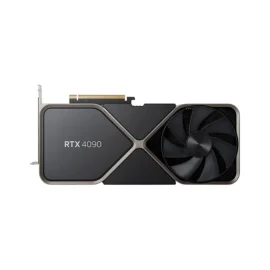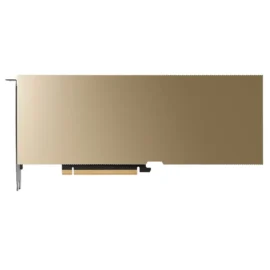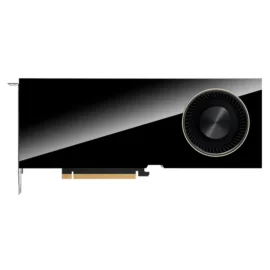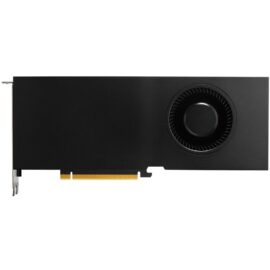Artificial Intelligence (AI) and machine learning are increasingly powering advancements across various fields, from healthcare and robotics to natural language processing (NLP) and computer vision. However, training AI models requires significant computational power, which is where GPUs come in. While top-tier GPUs like the NVIDIA H100 or RTX 4090 offer exceptional performance, many individuals and organizations are looking for budget-friendly GPUs that can still deliver solid results for AI tasks. In this article, we’ll dive into the best GPUs for AI, discuss various NVIDIA GPU options for AI training, and explore which GPUs are ideal for local generative AI and fast AI training.

What GPU Do You Need for AI?
The type of GPU you need for AI largely depends on the scope of your AI projects, the complexity of your models, and your budget. For AI training, GPUs with large memory and high computational power are crucial because AI tasks, especially deep learning, often involve training large models with vast amounts of data.
In general, if you’re working with simple machine learning models or experimenting with small datasets, mid-range GPUs might be sufficient. For more complex deep learning tasks or when working with large datasets, you’ll need a high-performance GPU that can handle the heavy lifting. Here’s a breakdown of what you can expect from different GPUs:
- Budget AI GPUs: Great for basic machine learning, smaller datasets, and entry-level AI development.
- Mid-Range GPUs: Suitable for moderately complex deep learning tasks and model training.
- High-End GPUs: Best for large-scale AI training, advanced deep learning models, and high-performance AI applications.
Now, let’s look at some of the best budget GPUs for AI, as well as more powerful options for demanding AI tasks.
Best Budget GPU for AI
When it comes to budget-friendly GPUs for AI, you don’t necessarily have to settle for low-performance models. Several GPUs offer good performance without breaking the bank. These GPUs can handle entry-level AI projects, such as training small machine learning models, and even some moderate deep learning tasks.
- NVIDIA A4000 The A4000 offers a great balance between performance and price, making it one of the best budget-friendly GPUs for AI. With 16GB of GDDR6 memory, the A4000 is suitable for many deep learning applications, particularly for smaller to medium-scale AI models. While it’s not as powerful as the A5000 or H100, it delivers solid performance for most AI training tasks and is priced much more affordably.
- NVIDIA RTX 3060 The RTX 3060 is an entry-level option for those who want to dip their toes into AI but don’t have the budget for high-end GPUs. While its 12GB of GDDR6 memory may not be enough for very large AI models, it’s more than adequate for smaller AI applications, such as basic machine learning, data analysis, and training simpler neural networks.
- NVIDIA A5000 The A5000 is a mid-range GPU that provides excellent performance for AI training at a more affordable price point compared to the A100 or H100. With 24GB of GDDR6 memory, it can handle more complex deep learning tasks and large datasets. If you want solid performance without spending top dollar, the A5000 is an excellent option for budget-conscious AI developers.
NVIDIA GPU List for AI Training
NVIDIA offers a wide range of GPUs specifically designed for AI and deep learning workloads. Here’s a quick overview of some of the top GPUs you should consider for AI training:
- NVIDIA L40 and L40s: Built on the Ada Lovelace architecture, the L40 and L40s are enterprise-grade GPUs designed for high-performance AI and deep learning tasks. They come with 48GB of GDDR6 memory, making them suitable for large AI models and extensive data processing. The L40s offers improved cooling and efficiency, ideal for long-term AI research and production environments.
- NVIDIA H100: The H100 is one of the most powerful GPUs for AI training, offering 80GB of HBM3 memory and support for Hopper architecture. It is designed for cutting-edge AI workloads such as natural language processing (NLP), large-scale deep learning models, and AI model inference. If you’re working on complex and resource-intensive AI projects, the H100 is a top choice.
- NVIDIA A100: Another high-performance GPU from NVIDIA, the A100 is widely used in data centers and for large-scale AI model training. With 40GB or 80GB of HBM2 memory, it delivers outstanding performance for deep learning applications, making it ideal for training and inferencing large models, including transformers and reinforcement learning models.
- NVIDIA 6000 Ada: Built on the Ada Lovelace architecture, the 6000 Ada GPU offers excellent performance for both AI training and AI inference tasks. While not as powerful as the H100 or A100, it provides a solid middle ground for developers looking for great performance at a lower price point.
Which is the Best GPU for AI Training?
For AI training, the best GPU depends on your specific requirements, including the size of your models, the complexity of your AI tasks, and your budget.
- Best for Budget-Friendly AI Training: The RTX 3060 or A4000 are excellent choices for those looking for entry-level or mid-range AI GPUs.
- Best for Advanced AI Training: The A100, H100, and A5000 offer the best performance for large-scale deep learning tasks, training transformer models, and running complex AI algorithms.
What GPU is Best for Fast AI?
When speed is a priority, you’ll want to choose a high-performance GPU that can handle large datasets and complex models with speed and efficiency. The following GPUs are ideal for fast AI training:
- NVIDIA H100: With 80GB of HBM3 memory and advanced features like Transformer Engine, the H100 excels in processing large datasets and running complex deep learning algorithms at lightning speed.
- NVIDIA A100: Known for its impressive speed, the A100 is one of the top GPUs for fast AI training. With up to 80GB of HBM2 memory, it offers outstanding computational power for large-scale AI models.
- NVIDIA L40 and L40s: For high-performance AI tasks that require fast processing, these GPUs deliver outstanding speed and efficiency, particularly for enterprise-level AI applications.
What GPU is Needed for Local Generative AI?
Generative AI tasks, such as creating synthetic data, text generation, or image generation using models like GANs (Generative Adversarial Networks), require GPUs that offer ample memory and computational power. The following GPUs are well-suited for local generative AI tasks:
- NVIDIA A100: With 80GB of HBM2 memory, the A100 is perfect for training complex generative models at scale. Whether you’re working on text-to-image generation or other AI-driven content creation tasks, the A100 will provide the computational horsepower you need.
- NVIDIA RTX 4090: The 24GB of GDDR6X memory on the RTX 4090 offers an excellent balance of power and memory, making it suitable for demanding generative AI workloads, such as training large GANs or transformers.
- NVIDIA A5000: The 24GB of GDDR6 memory on the A5000 is more than enough to handle local generative AI tasks, such as image or video generation using deep learning models.
Conclusion: Choosing the Best NVIDIA GPU for AI
Selecting the right GPU for AI largely depends on your specific needs, including the complexity of the AI tasks you’re working on and your budget. If you’re looking for budget-friendly options for smaller-scale AI tasks, the RTX 3060, A4000, or A5000 offer great value. For larger and more demanding AI workloads, the H100, A100, and L40 are top-tier GPUs that will provide unmatched performance for both training and inference.
In the end, NVIDIA’s AI GPU list offers a variety of options tailored to different AI applications. Whether you need a high-performance GPU for fast AI or a cost-effective solution for generative AI, there’s an NVIDIA GPU that fits your requirements.






